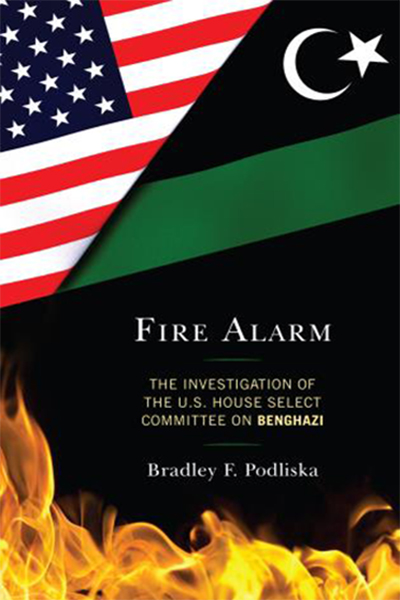 Fire Alarm The Investigation of the U.S. House Select Committee on Benghazi
Fire Alarm The Investigation of the U.S. House Select Committee on Benghazi
Fire Alarm: The Investigation of the U.S. House Select Committee on Benghazi is a study of legislative-executive friction, partisanship, and Congress's attempt to recount events surrounding the September 11, 2012, terrorist attack in Benghazi, Libya that killed four Americans. Using publicly available sources, Bradley F. Podliska details the history of congressional investigations, arguing that both Republicans and Democrats use taxpayer-funded investigations as an arena to mount political attacks for electoral advantage regardless of the consequences. He traces the events of September 11, 2012, and applies a new partisan model to frame the role of Speakers of the House John Boehner and Paul Ryan in investigating the Obama administration’s attack response and post-attack narrative. Employing qualitative and quantitative methods to analyze the divisive investigation, Podliska finds Speaker Boehner’s selection of party loyalists for the committee, placement of vetted staff in crucial investigative assignments to ensure execution of party strategy, and over emphasis on former Secretary of State and presidential candidate Hillary Clinton, minimized the examination of White House, Department of Defense, and Intelligence Community responses. As a result, the investigation failed to determine responsibility for U.S. policy in Libya, an accurate post-attack narrative, and why the military did not perform a timely rescue.